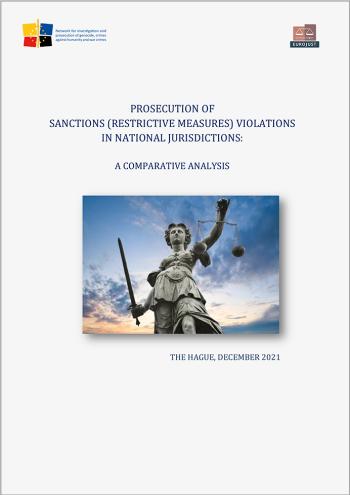
Sanctions, embargo, or restrictive measures, are political trade restrictions imposed by the United Nations or the European Union. They target governments, organised military or paramilitary groups, commercial entities and individuals whose behaviour contravenes international law and present specific threats, such as cyberattacks, proliferation of chemical weapons, terrorism, human rights violations and abuses. Investigating and prosecuting such violations could prove critical in the overall fight against impunity for core international crimes, including genocide, crimes against humanity and war crimes, in particular where corporate actors are involved. Legislation of all EU Member States include administrative or criminal penalties. Yet, very few individuals or legal persons are effectively held accountable for these offences. This report demonstrates that sanctions violations may provide an alternative or additional path towards accountability for core international crimes.
Pursuing violations of sanctions can assist in establishing a link or nexus needed in some countries for core international crimes proceedings to be initiated under the universal or extraterritorial jurisdiction principle. Furthermore, looking into sanctions violations may provide preliminary evidence for wider investigations leading to other forms of interlinked criminality such as terrorism or illegal trade. Therefore, sanctions monitoring and the adequate penalisation of sanctions violations should be fully integrated into EU Member States and practitioners’ overall strategies to fight against impunity.
